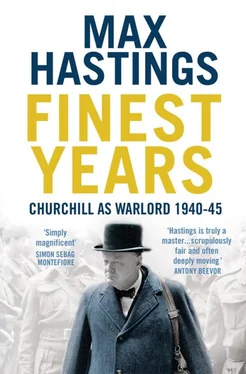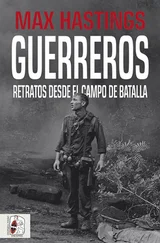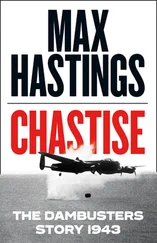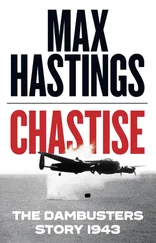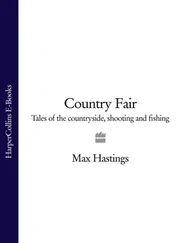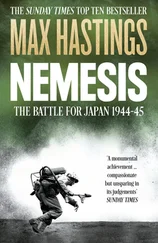Posterity owes little to Churchill’s wayward son Randolph, but a debt is due for his account of a visit to Admiralty House on the morning of 18 May:
I went up to my father’s bedroom. He was standing in front of his basin and shaving with his old-fashioned Valet razor…
‘Sit down, dear boy, and read the papers while I finish shaving.’ I did as told. After two or three minutes of hacking away, he half turned and said: ‘I think I see my way through.’ He resumed his shaving. I was astounded, and said: ‘Do you mean that we can avoid defeat?’ (which seemed credible) ‘or beat the bastards?’ (which seemed incredible).
He flung his Valet razor into the basin, swung around and said:—‘Of course I mean we can beat them.’
Me: ‘Well, I’m all for it, but I don’t see how you can do it.’
By this time he had dried and sponged his face and turning round to me, said with great intensity: ‘I shall drag the United States in.’
Here was a characteristic Churchillian flash of revelation. The prospect of American belligerence was remote. For years, Neville Chamberlain had repeatedly and indeed rudely cold-shouldered advances from Franklin Roosevelt. Yet already the new prime minister recognised that US aid alone might make Allied victory possible. Eden wrote that day: ‘News no worse this morning, but seems to me too early to call it better. PM and CIGS gave, however, optimistic survey to Cabinet.’ Whatever Churchill told his colleagues, he was now obliged to recognise the probability—though, unlike France’s generals, he refused to bow to its inevitability—of German victory on the Continent. Reports from the battlefield grew steadily graver. Churchill urged the chiefs of staff to consider bringing large reinforcements from India and Palestine, and holding back some tank units then in transit from Britain to the BEF. The threat of a sudden German descent on England, spearheaded by paratroops, seized his imagination, unrealistic though it was.
A Home Intelligence report suggested to the government that national morale was badly shaken: ‘It must be remembered that the defence of the Low Countries had been continually built up in the press…Not one person in a thousand could visualise the Germans breaking through into France…A relieved acceptance of Mr Churchill as prime minister allowed people to believe that a change of leadership would, in itself, solve the consequences of Mr Chamberlain. Reports sent in yesterday and this morning show that disquiet and personal fear have returned.’
That evening of 18 May, the war cabinet agreed that Churchill should broadcast to the nation, making plain the gravity of the emergency. Ministers were told that Mussolini had rejected Britain’s proposal for an Italian declaration of neutrality. This prompted navy minister A.V. Alexander to urge the immediate occupation of Crete, as a base for operations against Italy in the Mediterranean. Churchill dismissed the idea out of hand, saying that Britain was much too committed elsewhere to embark upon gratuitous adventures.
On the morning of Sunday, 19 May, it was learned that the BEF had evacuated Arras, increasing the peril of its isolation from the main French forces. Emerging together from a meeting, Ironside said to Eden: ‘This is the end of the British Empire.’ The Secretary for War noted: ‘Militarily, I did not see how he could be gainsaid.’ Yet it was hard for colleagues to succumb to despair when their leader marvellously sustained his wit. That same bleak Sunday, the prime minister said to Eden: ‘About time number 17 turned up, isn’t it?’ The two of them, at Cannes casino’s roulette wheel in 1938, had backed the number and won twice.
At noon, Churchill was driven across Kent to Chartwell, his beloved old home, shuttered for the duration. He sought an interlude of tranquillity in which to prepare his broadcast to the nation. But he had been feeding his goldfish for only a few minutes when he was interrupted by a telephone call. Gort, in France, was seeking sanction to fall back on the sea at Dunkirk if his predicament worsened. The C-in-C was told instead to seek to re-establish contact with the French army on his right, with German spearheads in between. The French, in their turn, would be urged to counter-attack towards him. The Belgians were pleading for the BEF to hold a more northerly line beside their own troops. The war cabinet determined, however, that the vital priority was to re-establish a common front with the main French armies. The Belgians must be left to their fate, while British forces redeployed south-westwards towards Arras and Amiens.
Broadcasting to the British people that night, Churchill asserted a confidence which he did not feel, that the line in France would be stabilised, but also warned of the peril the nation faced. ‘This is one of the most awe-striking periods in the long history of France and Britain. It is also beyond doubt the most sublime. Centuries ago words were written to be a call and a spur to the faithful servants of Truth and Justice: “Arm yourselves, and be ye men of valour…for it is better for us to perish in battle than to look upon the outrage of our nation and our altar. As the will of God is in Heaven, even so let it be.” ’
This was the first of his great clarion calls to the nation. It is impossible to overstate its impact upon the British people, and indeed upon the listening world. He asserted his resolve, and his listeners responded. That night he dispatched a minute to Ismay, reasserting his refusal to send further RAF squadrons to France. Every fighter would be needed ‘if it becomes necessary to evacuate the BEF’. It was obvious that this decision would be received badly by the French, and not all his subordinates supported it. His personal scientific and economic adviser, Frederick Lindemann—‘the Prof’—penned a note of protest.
Britain’s forces could exert only a marginal influence on the outcome of the battle for France. Even if every aircraft the RAF possessed had been dispatched to the Continent, such a commitment would not have averted Allied defeat. It would merely have sacrificed the squadrons that later won the Battle of Britain. In May 1940, however, such things were much less plain. As France tottered on the brink of collapse, with five million terrified fugitives clogging roads in a fevered exodus southwards, the bitterness of her politicians and generals mounted against an ally that matched extravagant rhetoric with refusal to provide the only important aid in its gift. France’s leaders certainly responded feebly to Hitler’s blitzkrieg. But their rancour towards Britain merits understanding. Churchill’s perception of British self-interest has been vindicated by history, but scarcely deserved the gratitude of Frenchmen.
He sent an unashamedly desperate message to Roosevelt, regretting America’s refusal to lend destroyers. More, he warned that while his own government would never surrender, a successor administration might parley with Germany, using the Royal Navy as its ‘sole remaining bargaining counter…If this country was left by the United States to its fate, no one would have the right to blame those men responsible if they made the best terms they could for the surviving inhabitants. Excuse me, Mr President, putting this nightmare bluntly.’ In Hitler’s hands, Britain’s fleet would pose a grave threat to the United States.
If this was a brutal prospect to lay before Roosevelt, it was by no means a bluff. At that moment Churchill could not know that Parliament and the British people would stick with him to the end. Chamberlain remained leader of the Conservative Party. Even before the crisis in France, a significant part of Britain’s ruling class was susceptible to a compromise peace. Following military catastrophe, it was entirely plausible that Churchill’s government would fall, just as Chamberlain’s had done, to be replaced by an administration which sought terms from Hitler. Only in the months which followed would the world, and Churchill himself, gradually come to perceive that the people of Britain were willing to risk everything under his leadership.
Читать дальше
